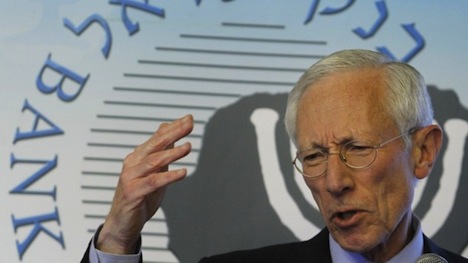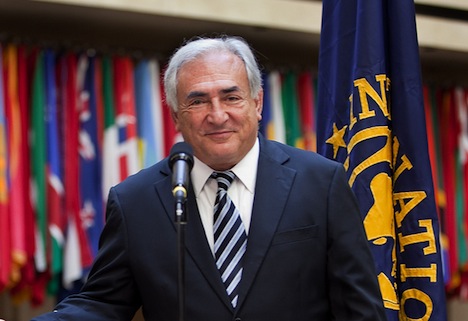Nothing screams ‘sexy’ more than… a payroll tax cut.![]()
With the French press salivating over French president François Hollande’s surprisingly sordid love life, Hollande tried to refocus his administration’s agenda last week at a press conference to announce a planned cut in France’s payroll taxes and other measures to boost France’s competitiveness. It’s a bid to win back some control over his unravelling public image. Hollande suffers from massively low approval ratings — just 22% of French voters support Hollande (somewhat of an improvement over polls in November that gave him just 15% approval). There’s even talk that his administration could augur the collapse of France’s Fifth Republic.
But Hollande’s policy revamp has been lost in the furor over Hollande’s alleged dalliance with actress Julie Gayet. Tabloids showed photos of the French president sneaking off to meet Gayet on his scooter (pictured above), and the news seems to have sent his current partner, Valérie Trierweiler, to a Paris hospital for over a week. Elected on the premise that he would bring decorum and normalité to the Élysée after the ‘bling-bling’ presidency of Nicolas Sarkozy, Hollande’s love life began overshadowing his presidency within days of his inauguration.
Trierweiler tweeted in support of Olivier Falroni, a dissident parliamentary candidate in June 2012, who was running against Ségolène Royal, Hollande’s former partner and the 2007 presidential candidate of the Parti socialiste (PS, Socialist Party). Royal lost that race, despite Hollande’s support. A reporter for Paris Match, Trierweiler fulfills the role of France’s first lady, complete with budget and staff, notwithstanding that she and Hollande never married. Hollande and Royal also never officially married during their nearly 30-year relationship, which produced four children.
Trierweiler left the hospital after more than a week on Saturday afternoon, but the discord between France’s first couple continues to dominate headlines, with Le Journal de Dimanche reporting that presidential advisers are calling the relationship ‘finished.’ So much for Mr. Normality. Though Sarkozy and his two predecessors, Jacques Chirac and François Mitterand, were both known for active love lives, the nature of media has changed since the French press kept Mitterand’s longtime mistress a secret from the public in the 1980s.
At a policy level, none of Hollande’s domestic troubles should matter. But they come at exactly the wrong time, overshadowing Hollande’s push to make France’s economy more competitive. At the center of Hollande’s proposal is a €30 billion payroll tax cut for French businesses, continue pushing forward with plans for €15 billion in budget cuts this year, with €50 billion more to follow over the next three years. Though Hollande hopes that will make France’s businesses more willing to hire French workers, it seems unlikely to erase the mistrust Hollande has engendered by pushing a top income tax rate of 75% on incomes over €1 million, a troubled policy that seems set to take effect after facing legal problems in France’s top constitutional court. Hollande and his leftist parliamentary majority pushed through a labor market reform in January 2013, but it was a relatively minor first step that merely streamlined the process for conducting layoffs.
Hollande would have engendered much more goodwill if he’d announced a retreat from the iconic 75% rate or announced a much bolder labor market legislation. But that carries with it the risk of a full-scale revolt on the French left. Continue reading Hollande’s economic restart falls flat amid domestic drama



